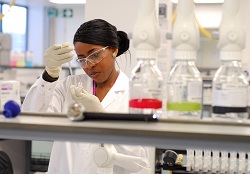THE ISSUE of sports doping gains importance with each new major international event, as athletes strive to gain the maximum performance from their bodies while remaining on the ‘legal’ side of the allowable limits for substances.

Anti-doping lab for London 2012 Olympics will test 60% of athletes
The organisers of London 2012 will be breathing a sigh of relief today, 95 days before the Olympiad opens, with the news that its anti-doping laboratory has been granted accreditation by the World Anti-Doping Agency (WADA). “This means that the London 2012 Anti-Doping Lab will operate to the highest standards of sample analysis during the Olympic and Paralympic Games,” said Wada president John Fahey.
The accreditation process took two years and was based on two international standards (ISO/IEC 17025, and the International Standard for Laboratories), involving a series of tests to establish the laboratory’s credentials. The procedure involved three formal on-site inspections, complete with dummy sample testing.
The lab is located at Harlow, Essex, about 25 miles (40km) from the main Olympic venue in east London. The laboratory itself has been built at a cost of about £20 million by GlaxoSmithKline (GSK) and is operated by King’s College London.
The lab will be operated round-the-clock during the London 2012 Olympics, which open on 27 July and close on 12 August 2012. 150 scientists will analyse around 6250 samples, looking for traces of any of 240 banned substances.
At its peak, the lab is expected to handle up to 400 samples per day, including tests on all Olympic medallists. The games includes 302 events in 26 sports, which means at least 906 medals, but of course team sports result in multiple medals. We haven’t been able to discover the precise number of medals to be awarded at the London 2012 Olympics, but we know that about 4700 medals have been struck by the Royal Mint for use at both Olympics and Paralympics.
The Olympics will attract 10,500 athletes from around the world, meaning that about 60% of all participants can expect to have their urine sampled and analysed. Test turnaround time is a minimum of 24 hours, with some tests expect to take longer.
